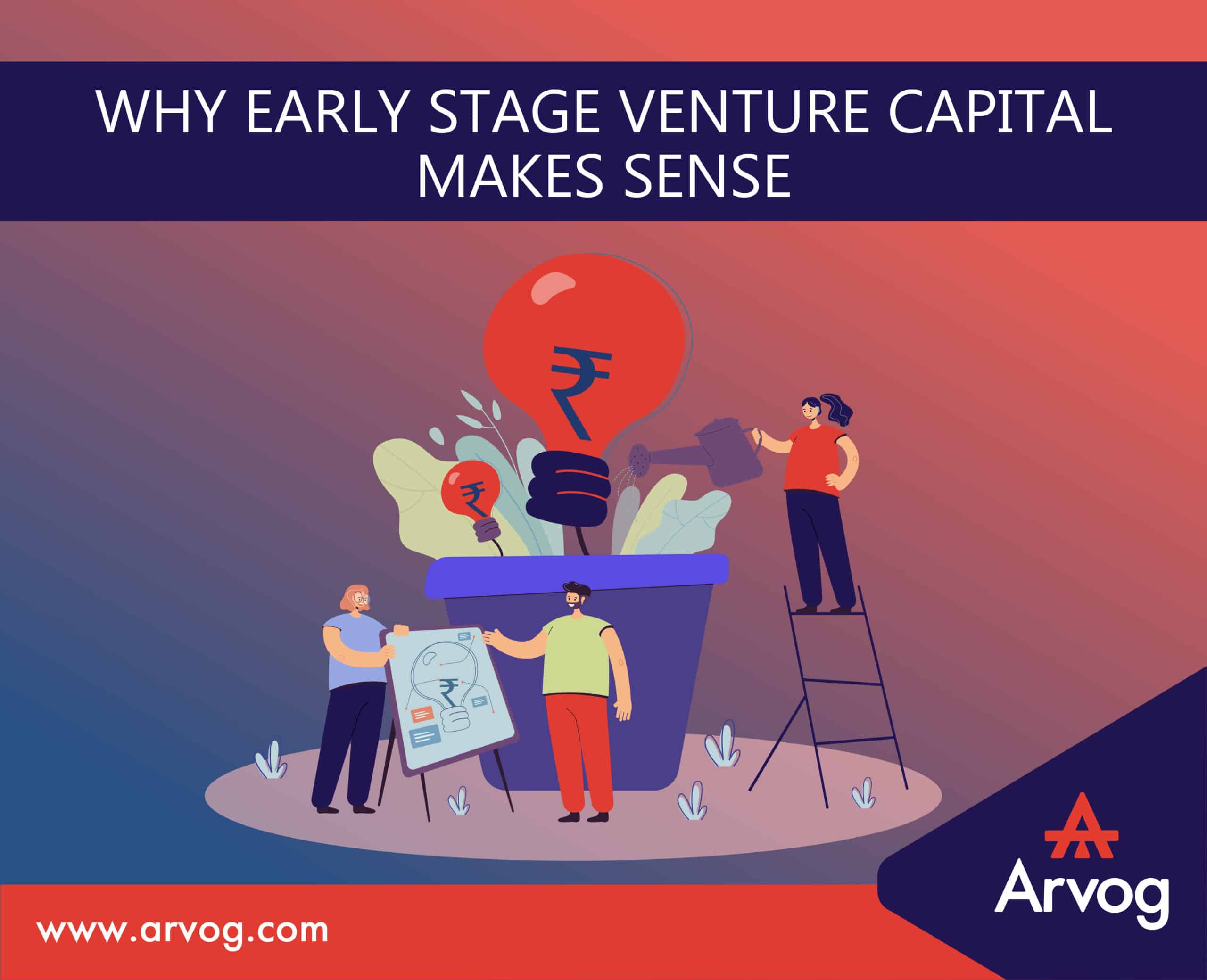
‘Venture capital is about capturing the value between the start-up phase and the public company phase’, commented Fred Wilson upon being asked what Venture Capital means to him. Fred is an American businessman and a Venture Capitalist with investments in Web 2.0 companies such as Twitter, Tumblr, Foursquare, Zynga, and many others. While I second the propounded definition, undoubtedly investing in start-ups is all about valuations. Everyone is looking for the next unicorn or disrupter, and many investors are on the hunt to find these companies at their earliest stages. Because the later you invest, the more you’re going to end up paying for less of the company.
Once the company’s Minimum Viable Product (MVP) is ready and out in the market, the valuations tend to rise as revenues are flowing in and it shows customer growth. More recently, that rise has been exponential.
That’s why we’re seeing more and more Institutional investment funds spending more time investing in Seed and Series A stages that perhaps, they historically have not looked at. And the reason, why are these institutional investors that have historically focused on later stage ventures going earlier and earlier stage and investing in what are not yet fully fleshed out businesses. They hope to catch a unicorn on the upswing and get in before anyone else, or they are equally concerned about investing in companies with inflated valuation in a weak equity market, a market they are dependent on for exits.
The numbers back this trend too, according to Crunchbase, the average Series A round increased from barely $6 million a decade ago to more than $18 million in 2021. And that holds for even earlier rounds too. The median seed round was approximately $1 million as of 2010 but that jumped 4x to $4 million in 2020, according to a multi-year study conducted by Wing VC.
Simply put: Early-stage valuations today are significantly higher than they used to be, but the reality of investing at this stage is the same as it ever was. However, given the run-up in later-stage venture valuations and the volatile equity markets, the ability to invest in early-stage companies at their lowest valuations is increasingly attractive to investors.
Let’s look at the other investment options available with an investor to deploy the capital. The equity market is undergoing corrections, driven by macroeconomic factors like inflation and geopolitical instability as well as microeconomic factors like the recent (and dramatic) declines in cryptocurrency prices. And the public markets will likely continue to feel the pressure of inflation and rising interest rates, making equities less attractive until directional clarity is created. Rising rates will make fixed-income securities more attractive, but only marginally until inflation is curbed. Assets like real estate will likely hold their value but require significant capital expenditures and management resources. The current landscape leaves VCs with a difficult choice on how to deploy capital. The reality is that enormous returns have been generated in early-stage venture capital by VCs who invested deeply at this stage of the cycle.
On the other side, there’s always risk in seed-stage ventures due to unproven business models, untested leadership teams and quickly changing market conditions that can snow under even the most promising small start-up. And that’s what “new” entrants are overlooking – early-stage investing is fundamentally different from even Series A and later. At this level, you need to get comfortable with the idea of doing less diligence and making more investments in smaller companies.
You also need to think bigger – at this level, it’s not uncommon to see hundreds or even thousands of companies in a successful portfolio. There are simply too many variables at play to spot the winners this early.
Arvog as the venture capitalist focuses on tech-drivenstart-ups that are directly or indirectly solving the problems of the masses. As a company, we want to provide products and services that are simple, useful, and relevant to your life. At Arvog, we want the partner to See Worth.
Today as VC, Arvog has investments across sectors from AgriTech, FinTech, and RealtyTech to SpaceTech. And we actively look for more investment opportunities via JITO and other angel networks thus maintaining a portfolio that delivers Worth, to all stakeholders.
The business of venture investment is about not only understanding the risks involved but also adjusting your investment thesis to maximize potential returns.




